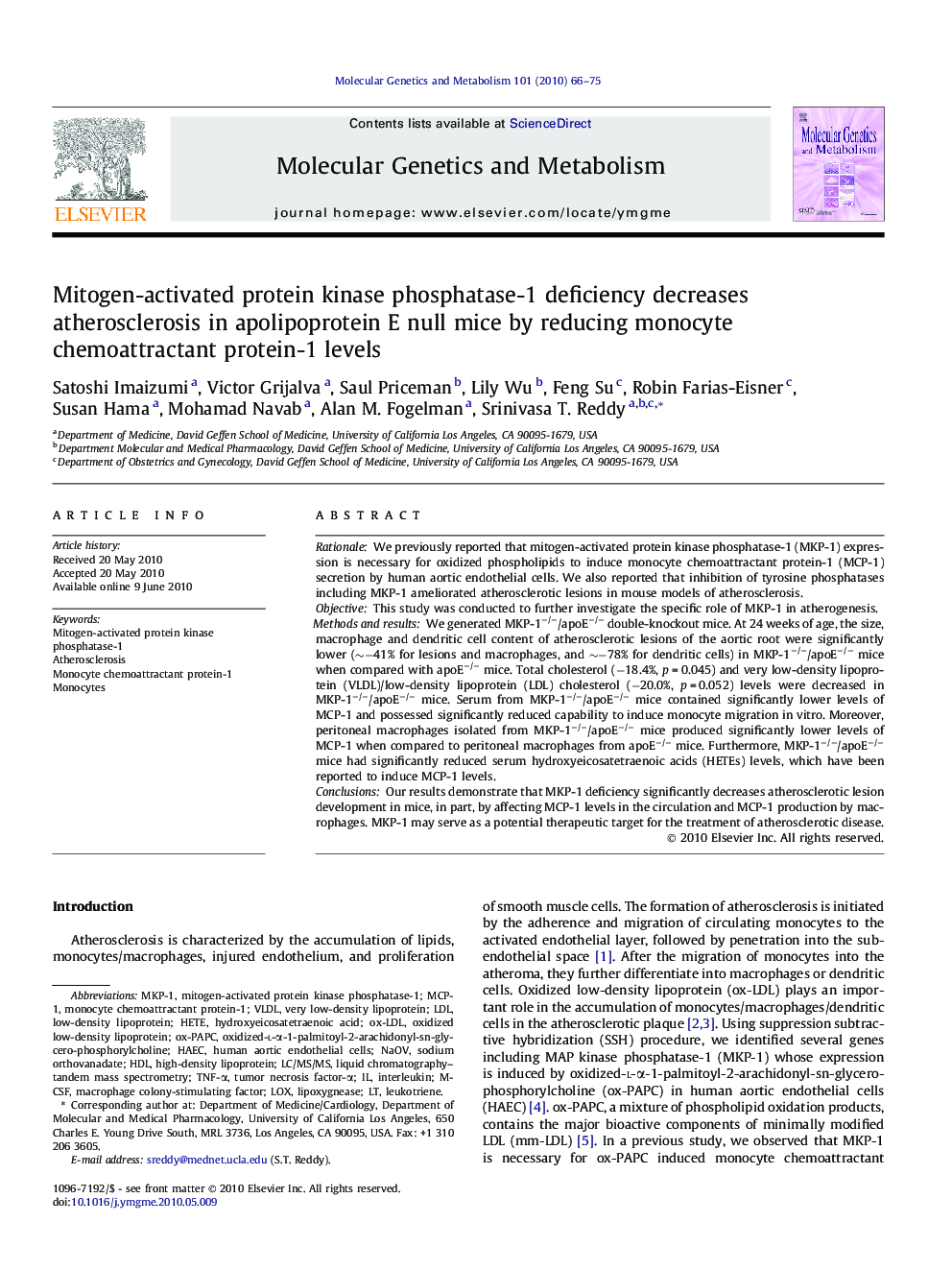| کد مقاله | کد نشریه | سال انتشار | مقاله انگلیسی | نسخه تمام متن |
|---|---|---|---|---|
| 1998951 | 1065830 | 2010 | 10 صفحه PDF | دانلود رایگان |

RationaleWe previously reported that mitogen-activated protein kinase phosphatase-1 (MKP-1) expression is necessary for oxidized phospholipids to induce monocyte chemoattractant protein-1 (MCP-1) secretion by human aortic endothelial cells. We also reported that inhibition of tyrosine phosphatases including MKP-1 ameliorated atherosclerotic lesions in mouse models of atherosclerosis.ObjectiveThis study was conducted to further investigate the specific role of MKP-1 in atherogenesis.Methods and resultsWe generated MKP-1−/−/apoE−/− double-knockout mice. At 24 weeks of age, the size, macrophage and dendritic cell content of atherosclerotic lesions of the aortic root were significantly lower (∼−41% for lesions and macrophages, and ∼−78% for dendritic cells) in MKP-1−/−/apoE−/− mice when compared with apoE−/− mice. Total cholesterol (−18.4%, p = 0.045) and very low-density lipoprotein (VLDL)/low-density lipoprotein (LDL) cholesterol (−20.0%, p = 0.052) levels were decreased in MKP-1−/−/apoE−/− mice. Serum from MKP-1−/−/apoE−/− mice contained significantly lower levels of MCP-1 and possessed significantly reduced capability to induce monocyte migration in vitro. Moreover, peritoneal macrophages isolated from MKP-1−/−/apoE−/− mice produced significantly lower levels of MCP-1 when compared to peritoneal macrophages from apoE−/− mice. Furthermore, MKP-1−/−/apoE−/− mice had significantly reduced serum hydroxyeicosatetraenoic acids (HETEs) levels, which have been reported to induce MCP-1 levels.ConclusionsOur results demonstrate that MKP-1 deficiency significantly decreases atherosclerotic lesion development in mice, in part, by affecting MCP-1 levels in the circulation and MCP-1 production by macrophages. MKP-1 may serve as a potential therapeutic target for the treatment of atherosclerotic disease.
Journal: Molecular Genetics and Metabolism - Volume 101, Issue 1, September 2010, Pages 66–75